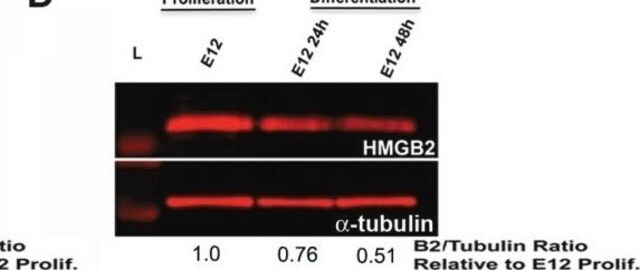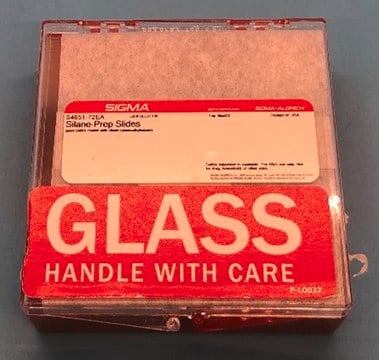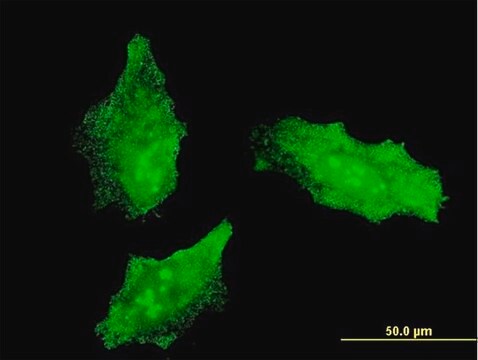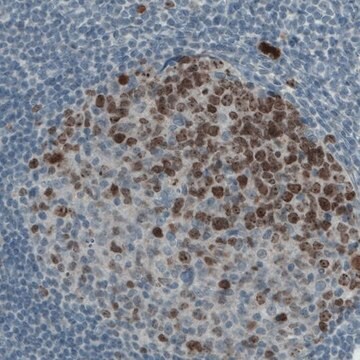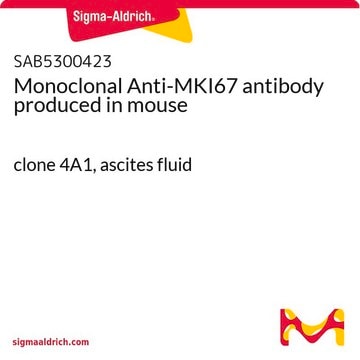AB9260
Anti-Ki-67 Antibody
Chemicon®, from rabbit
Synonym(s):
Anti-Ki-67
About This Item
Recommended Products
biological source
rabbit
Quality Level
antibody form
affinity isolated antibody
antibody product type
primary antibodies
clone
polyclonal
purified by
affinity chromatography
species reactivity
mouse, human
species reactivity (predicted by homology)
rat
manufacturer/tradename
Chemicon®
technique(s)
immunohistochemistry: suitable (paraffin)
western blot: suitable
NCBI accession no.
UniProt accession no.
shipped in
wet ice
target post-translational modification
unmodified
Gene Information
human ... MKI67(4288)
mouse ... Mki67(17345)
rat ... Mki67(291234)
General description
Specificity
Immunogen
Application
Confolcal fluorescent analysis of A431 cells using AB9260 rabbit pAB. Actin filaments were labeled with Alexa Fluor 488 -Phalloidin. Nuclear is stained with DAPI. (Nuclear staining).
Western Blot Analysis:
A previous lot of this antibody was used in western blot.
Optimal working dilutions must be determined by the end user.
Quality
Representative lot data.
This antibody was used on formalin fixed, paraffin embedded tissue at 1:300 dilution for 10 minutes at room temperature. Staining of formalin-fixed tissues requires boiling of tissues in 10 mM citrate buffer, pH 6.0 for 10 minutes followed by cooling at room temperature for 20 minutes.
Target description
Physical form
Analysis Note
Positive Control: Breast carcinoma, lymph node tissue, normal tonsil.
Other Notes
Legal Information
Not finding the right product?
Try our Product Selector Tool.
recommended
Storage Class Code
12 - Non Combustible Liquids
WGK
WGK 2
Flash Point(F)
Not applicable
Flash Point(C)
Not applicable
Certificates of Analysis (COA)
Search for Certificates of Analysis (COA) by entering the products Lot/Batch Number. Lot and Batch Numbers can be found on a product’s label following the words ‘Lot’ or ‘Batch’.
Already Own This Product?
Find documentation for the products that you have recently purchased in the Document Library.
Customers Also Viewed
Our team of scientists has experience in all areas of research including Life Science, Material Science, Chemical Synthesis, Chromatography, Analytical and many others.
Contact Technical Service




